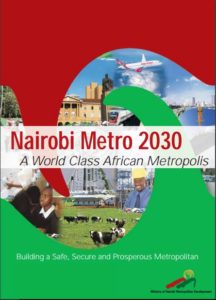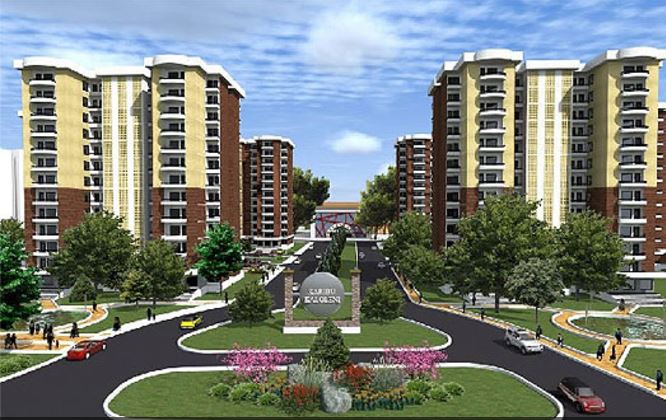The first phase of Nairobi County. Kenya government Sh200 billion urban renewal projects will officially be launched in the next two months, Governor Evans Kidero has said.
The urban regeneration program will deliver 30,000 apartments equal to 100,000 housing units which will help in easing housing crisis facing most of the estates in the city. “We are determined to deliver more affordable houses to Kenyans and thus help in reducing the huge house supply gap the country is grappling with,” said Kidero.
 This work is part of Nairobi Metro 2030 plan, which was published in 2008. That plan is coordinated with the Kenya Vision 2030 plan.
This work is part of Nairobi Metro 2030 plan, which was published in 2008. That plan is coordinated with the Kenya Vision 2030 plan.
The vision of Nairobi is to be a world class African metropolis by 2030. It will strive to create a world class working environment with a wide range of jobs, transport options and communication infrastructure. It is a vision of a world class living environment with modern housing, healthcare, cultural amenities and recreational facilities. Nairobi intends to provide high-quality office, production and storage space supported by a full range of ancillary services and information infrastructure.
The Nairobi 2030 plan intends to achieve its vision through a range of integrated initiatives that address the challenges that currently hinder urban development and social progress. Central to the city’s plan on improving its international economic competitiveness is the development of regional and global service hubs for business, trade and finance. In addition to attractive foreign investment through a thriving business economy, the plan also supports the continued development of Nairobi’s tourism sector through investments in hotel facilities, transportation access (including a massive upgrade of the Jomo Kenyatta International Airport) and crime prevention. Finally, the plan also intends to spur the development of industrial parks and facilities within the city as well.
The city also plans on investing heavily in building modern municipal infrastructure to improve access to electric, water delivery and sanitation utilities across the entire metropolitan region. In addition to providing basic access to these utilities, the plan also stresses the importance of improving access to information and communication technology networks that support business, government, education and literacy.
 The plan also outlines the development of a transport master plan to effectively improve transportation infrastructure and land use planning to improve existing transportation options around the city. Focusing on improvement of the existing road network, the plan also details an urban mass transit strategy that centers around investments in high occupancy buses and modernization of the existing commuter rail network. By improving the city’s accessibility to mass transportation, the city can effectively reduce road congestion and increase commuter access to the city center, while improving public health at the same time.
The plan also outlines the development of a transport master plan to effectively improve transportation infrastructure and land use planning to improve existing transportation options around the city. Focusing on improvement of the existing road network, the plan also details an urban mass transit strategy that centers around investments in high occupancy buses and modernization of the existing commuter rail network. By improving the city’s accessibility to mass transportation, the city can effectively reduce road congestion and increase commuter access to the city center, while improving public health at the same time.
By implementing these strategies, Nairobi hopes to serve as a gateway between Africa and the rest of the world. It also addresses the growing poverty issues with the intention of creating a creating a better quality of life for those living in the metropolitan area.
Images courtesy of Nairobi County.

